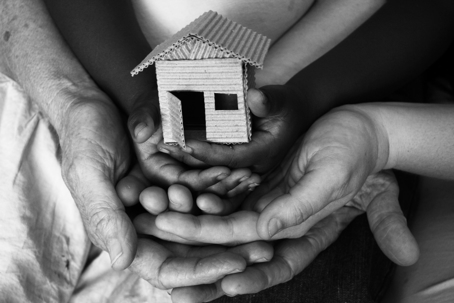One of the most challenging times in any person’s life is when a relationship is coming to an end, especially if that relationship is a marriage with children. These kinds of situations are often full of emotion and turmoil and this often leads to heavy involvement with the Court System. From the civil Chapter 50 actions, the family law actions, to the criminal actions that often come out of these situations, having one law firm that can handle everything is almost always a benefit to you.
The court system often gets involved in the dissolution of a marriage in three ways:
Chapter 50 or family law actions
While under the blanket of civil actions, family law matters, often found in North Carolina General Statutes Chapter 50, are some of the most complex and high-stakes actions in the court system. The most common examples of Chapter 50 actions are: equitable distribution, or the division of the property owned by the couple; child custody and child support, which will determine who has custody of the children and how much, if any child support will be paid by the parties; to absolute divorce, which is the official termination of the marriage.
These actions each have their own timing requirements, deadlines, pleading requirements, as well as many local rules that affect how you must proceed in each different kind of action. When you are involved in this kind of situation, it is vital that you have an attorney who knows the rules and procedures of each and who can make sure that you not only follow these rules but use them to make sure that you are not taken advantage of.
Domestic Violence Protective Orders
Unfortunately, one of the most common adjacent actions to a family law situation is the action for a Domestic Violence Protective Order or DVPO. The DVPO is a restraining order that is specially tailored for domestic situations, in fact, you must be in a qualifying domestic relationship in order to get one of these types of restraining orders. The list of qualifying domestic relationships can be found in North Carolina General Statute 50B.
While the DVPO is a civil action, they often come with very serious side effects that can be criminal in nature depending on the situation. For instance, violation of a DVPO is a class A1 misdemeanor for which the police must arrest the person deemed to be in violation. It is essential to know that currently, the DVPO is not a restraint on both parties, only the person the order is issued against is forbidden to have contact with the person who took it out, it does not work both ways. This often can lead to abuse of the process or the order itself, which leads to criminal actions. Another key cross-over situation is when a person is charged with a crime and there is a DVPO taken out against them. This means that the hearing for the DVPO, which will certainly be held before any criminal hearing, can have a major effect on your criminal case, so it is important that your criminal defense attorney is in the loop about everything that happens if not an active part in your DVPO case.
Criminal Actions
Unfortunately, the other most common adjacent action to a family law matter is a criminal charge. North Carolina is one of the very few states that still allow for the issuance of what is called a private warrant. A private warrant is a criminal action that is not instigated by the police, it is instead instigated by a private party and while many jurisdictions require a police report in order to take out a warrant against someone, not all do. This situation often leads to one party in family law or DVPO situation going and taking out criminal charges against the other party. While these criminal actions are separate from civil actions and while the rules and regulations that are used in criminal court are vastly different from civil court, there is still a large crossover.
Because the burden of proof in a criminal action is higher than the burden of proof in a civil action, the fact that you are convicted of a crime in connection with domestic violence can and often will be used against you in your family law actions and DVPO actions. Therefore, it is often very important that your family law attorney and criminal attorney are working together and have good communication to ensure that all of your interests are being protected.
With the large cross-section of crossover between Family Law, Domestic Violence, and Criminal Law, a multi-practice law firm is often the best asset to have on your team. The lawyers at Jetton and Meredith practice all three types of law and our team can jump in to assist you with any problem that you may be having. If you find yourself in the position to need an attorney for Family Law, Domestic Violence, or Criminal law, call the attorneys at Jetton and Meredith today.

